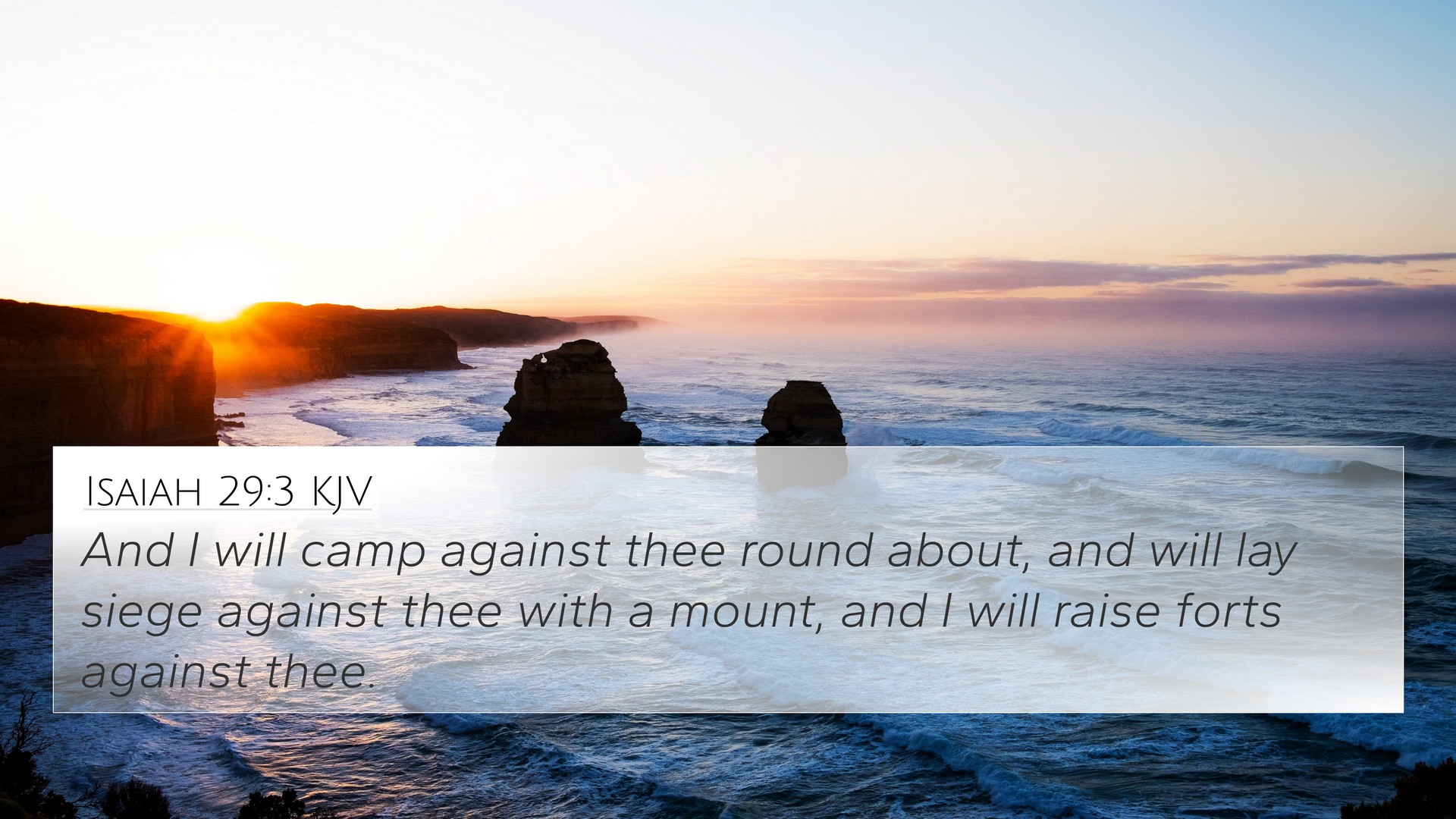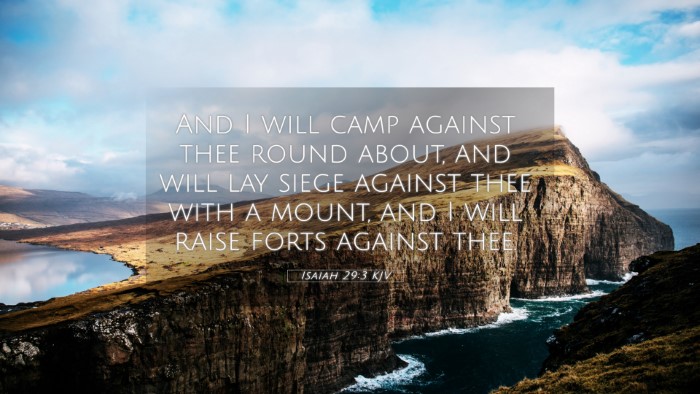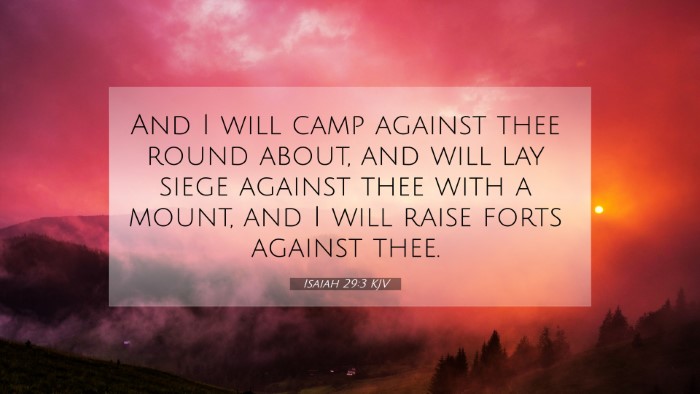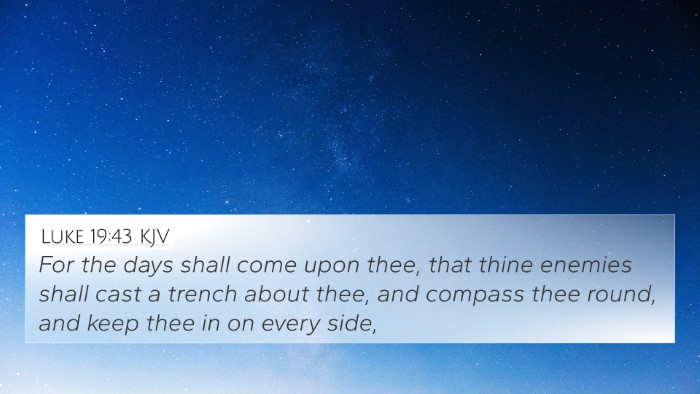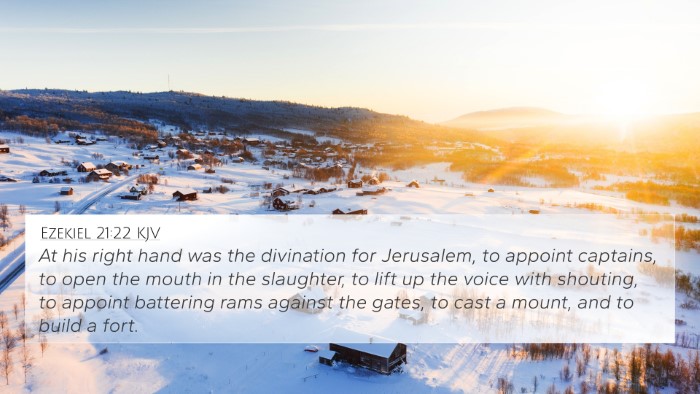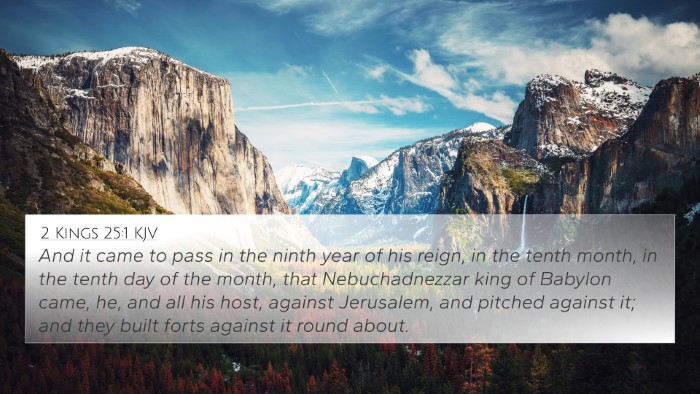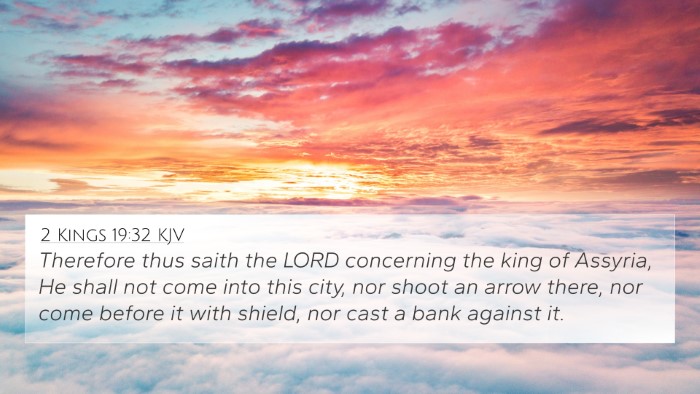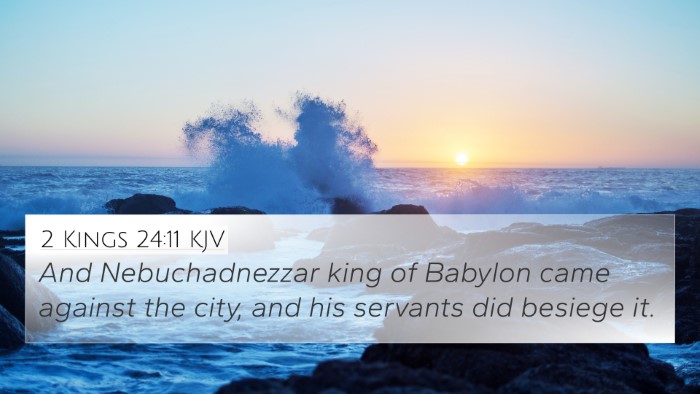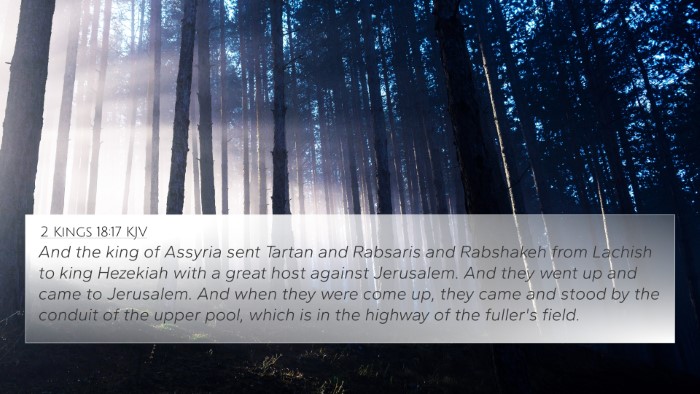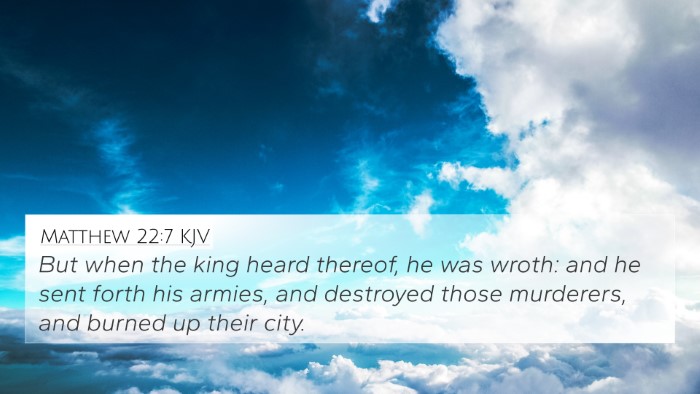Understanding Isaiah 29:3
Verse: “And I will camp against you all around, and will besiege you with towers and I will raise siege works against you.”
Contextual Overview
This verse is situated within a prophetic context where the Lord speaks to the city of Jerusalem, warning about impending judgment due to its disobedience. The imagery of besieging indicates a thorough and complete encirclement, highlighting the seriousness of the threat that the people face. Prophets often used stark language to communicate God's displeasure and impending action.
Commentary Insights
- Matthew Henry: He elaborates that this verse illustrates the totality of God’s judgment. The supernatural elements of siege, represented by God as the enemy, signal that the opposition is from divine forces rather than mere human aggression. It serves as a warning that leads to repentance.
- Albert Barnes: Barnes emphasizes the metaphorical language and suggests that the "siege" language depicts not just physical warfare but spiritual warfare against the heart of the people of Jerusalem. Barnes connects this with the theme of divine intervention in human affairs.
- Adam Clarke: Clarke interprets the besieging as a necessary act to bring acknowledgment of sin and to encourage repentance. His commentary focuses on the reasons for divine judgment, linking it to the waywardness of Israel and how this act serves to provoke a response from the people.
Thematic Connections
Isaiah 29:3 carries significant thematic relevance in the Bible. It underscores themes of divine discipline, the necessity of accountability, and the call to return to God.
Bible Verse Cross-References
- 2 Kings 25:1-2: This verse details the siege of Jerusalem by Nebuchadnezzar illustrative of God’s judgment.
- Jeremiah 19:9: This passage conveys God’s message regarding the fate of Jerusalem, also tied to divine judgment.
- Ezekiel 4:2: God commands a symbolic siege against Jerusalem, echoing similar themes as Isaiah 29:3.
- Lamentations 2:1: This verse poetically expresses the deep sorrow over Jerusalem’s desolation, aligning with Isaiah's prophecy.
- Matthew 23:37: Jesus laments over Jerusalem, suggesting a continued theme of divine longing versus human rebellion.
- Luke 19:43-44: This New Testament passage foretells the coming siege of Jerusalem, resonating with Isaiah’s warnings.
- Acts 7:51-52: Stephen's speech emphasizes the rejection of God's prophets by Jerusalem, linking past disobedience to current judgments.
Connections Between Bible Verses
Exploring the link between Isaiah 29:3 and its cross-references allows for a deeper understanding of biblical narratives and themes of judgment and repentance.
Linking Bible Scriptures:
- Both Jeremiah and Ezekiel offer parallels to Isaiah’s depiction of siege as a metaphor for spiritual and physical consequences.
- The lamentations express sorrow similar to the warning given to Jerusalem by Isaiah, confirming the prophetic tradition.
- New Testament references concerning Jerusalem echo the themes of Isaiah 29:3, showing a continuity of God’s message across time.
Biblical Study Tools
For those engaged in deeper study of Isaiah 29:3, utilizing tools for Bible cross-referencing can enhance understanding:
- Bible Concordance: A helpful tool to locate verses that are conceptually linked.
- Bible Cross-Reference Guide: Provides comprehensive listings of intertwined scriptures.
- Cross-reference Bible Study: Engages readers in thematic comparisons.
- Bible Reference Resources: Useful for in-depth research on biblical themes and their connections.
Conclusion
Isaiah 29:3 serves as a vital part of the dialogue in scripture regarding God’s interactions with His people. Through engaging with this verse and its expansive cross-references, readers can enrich their understanding of divine judgment, grace, and the ever-present invitation to repentance.
